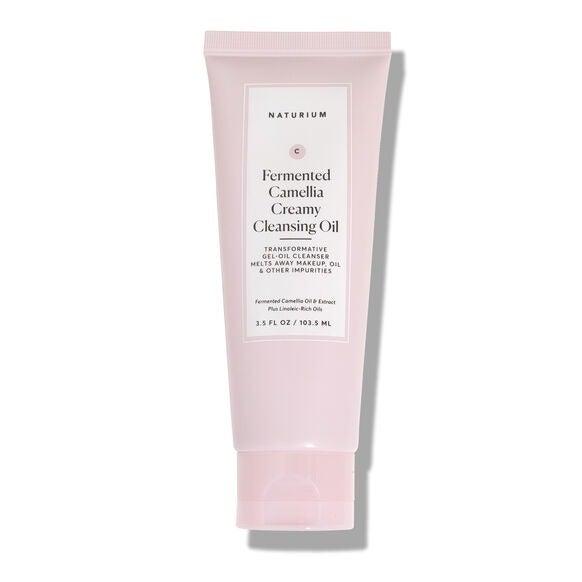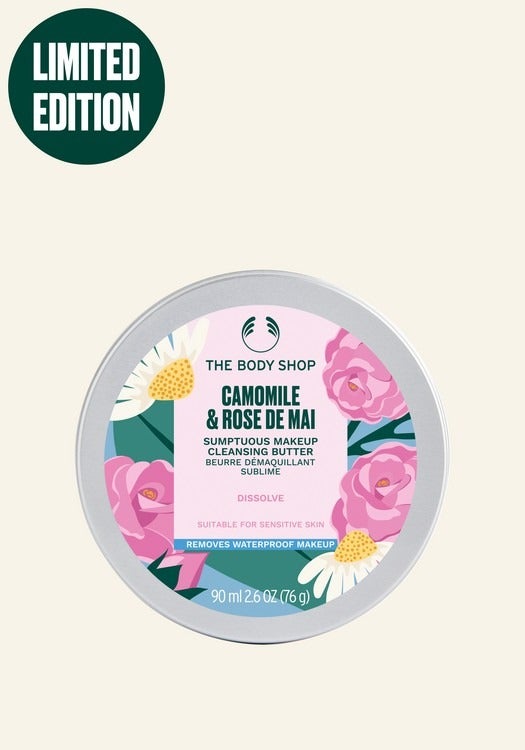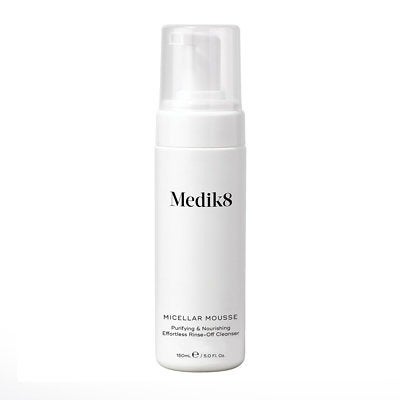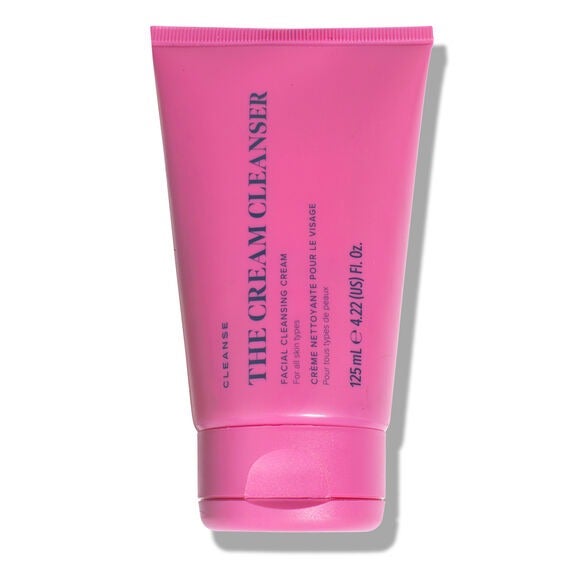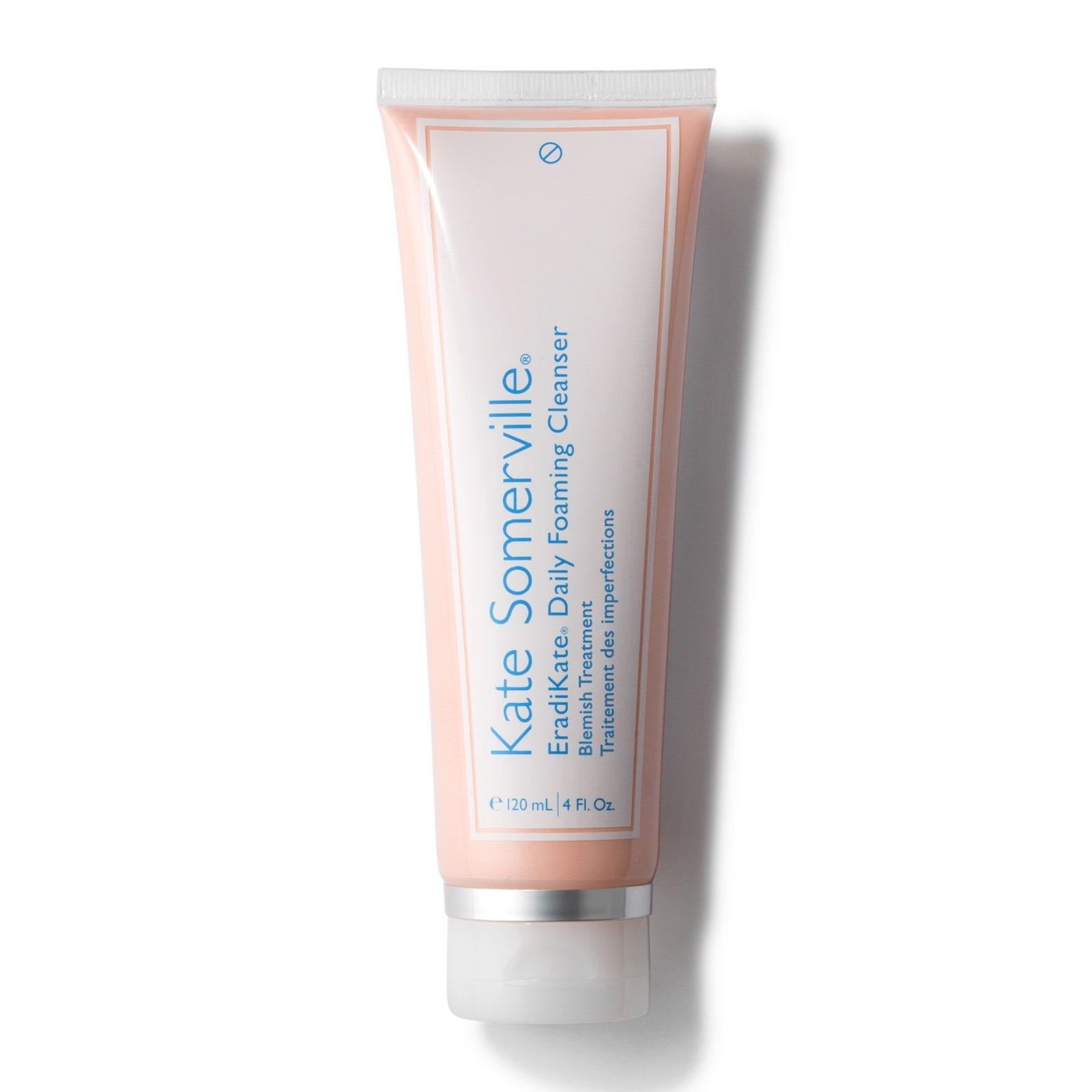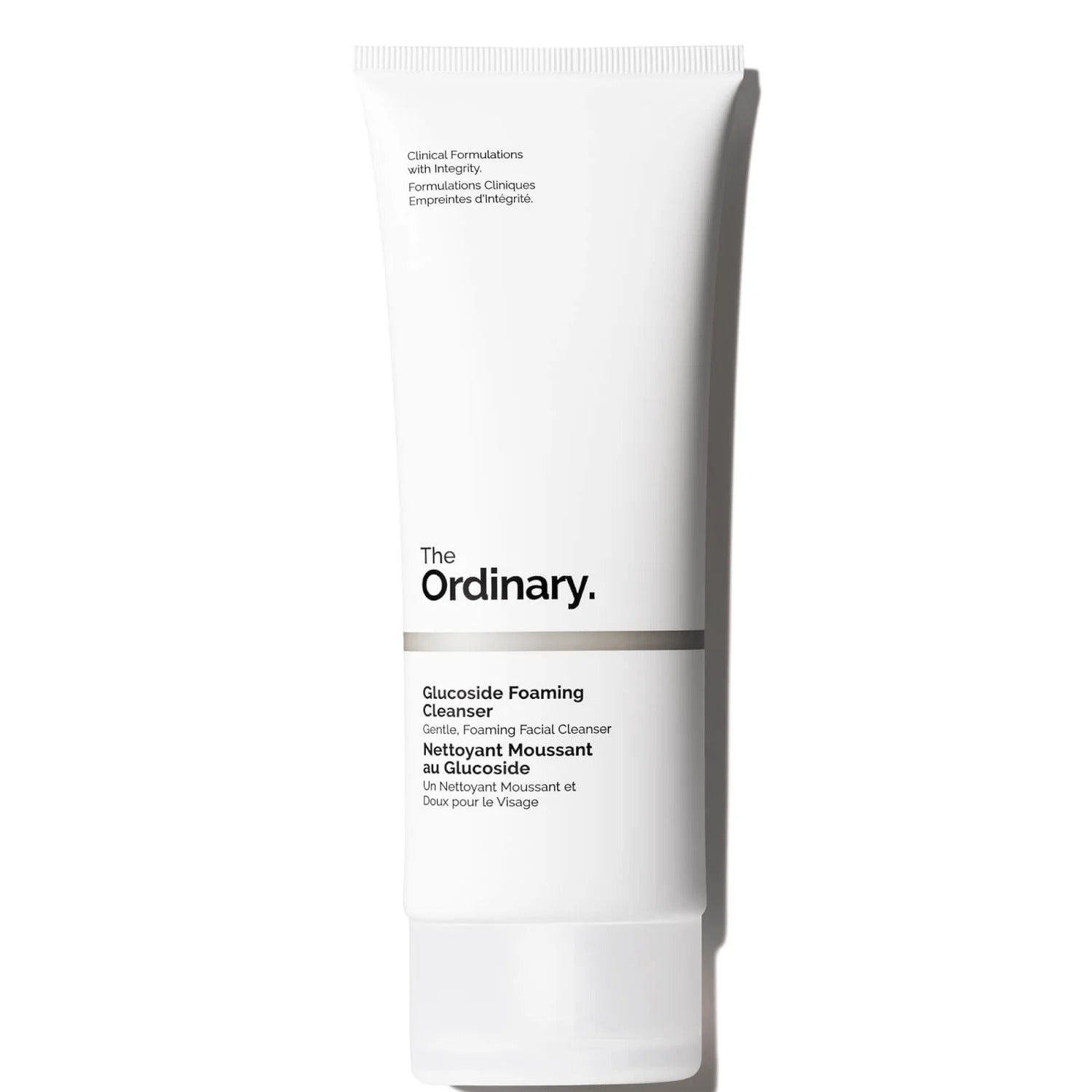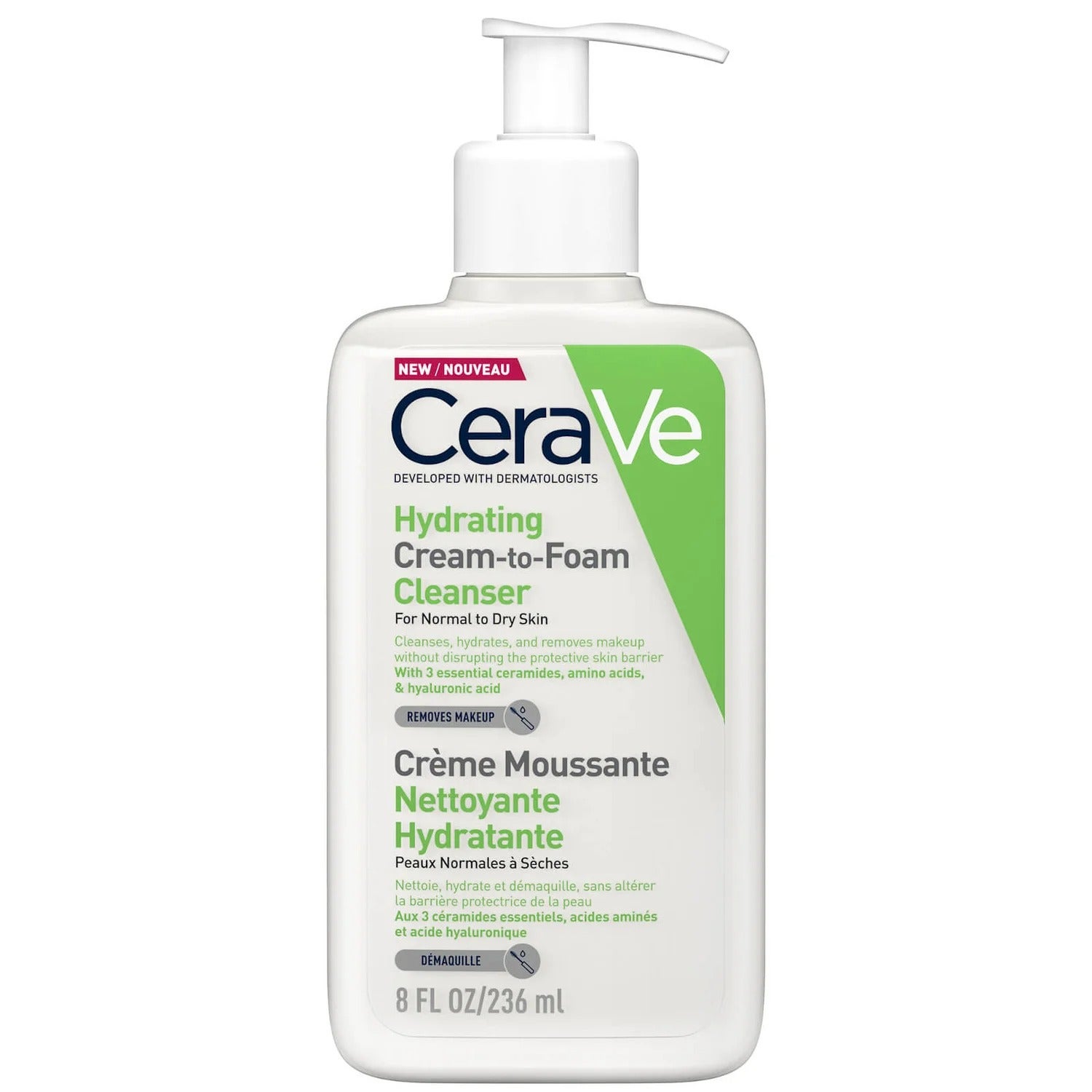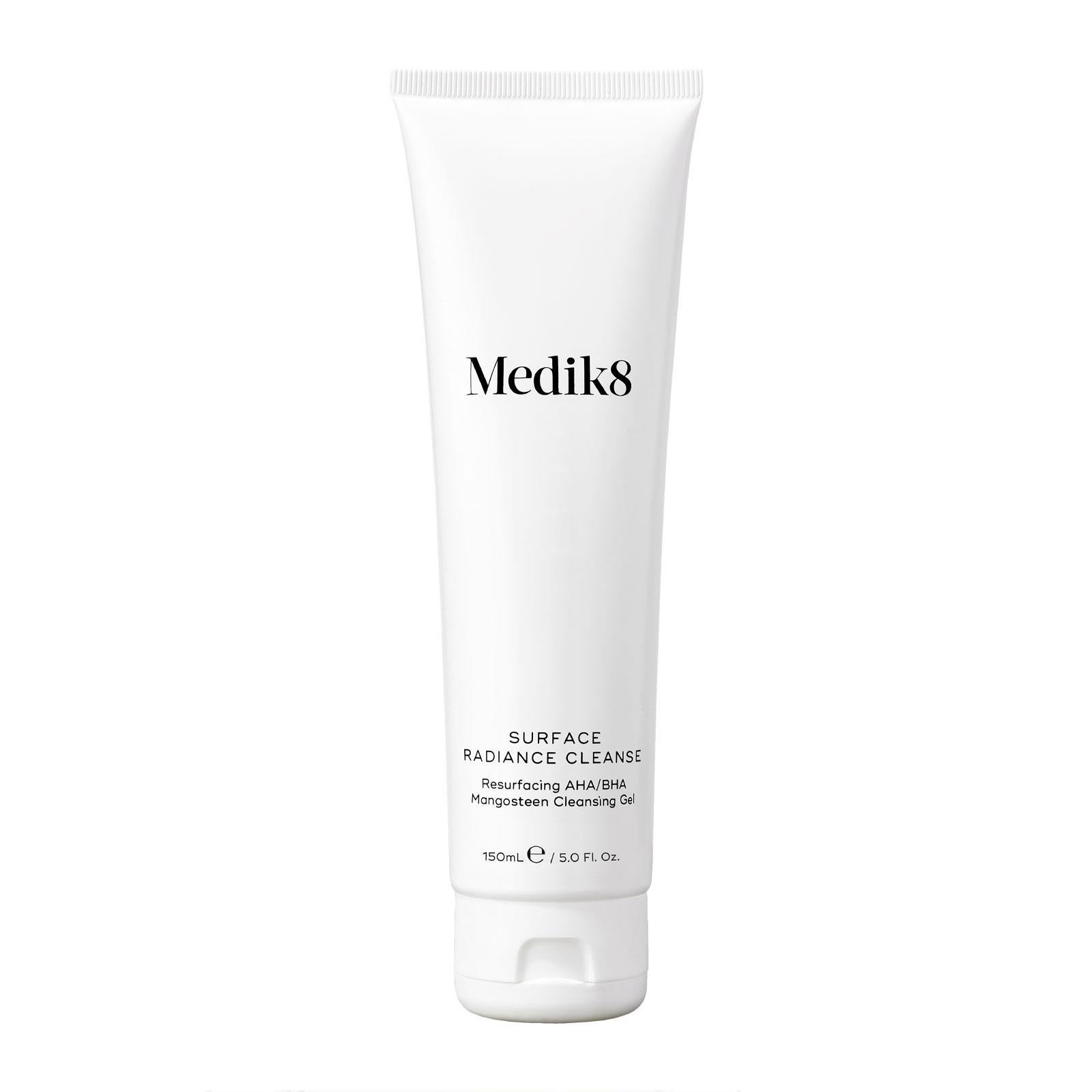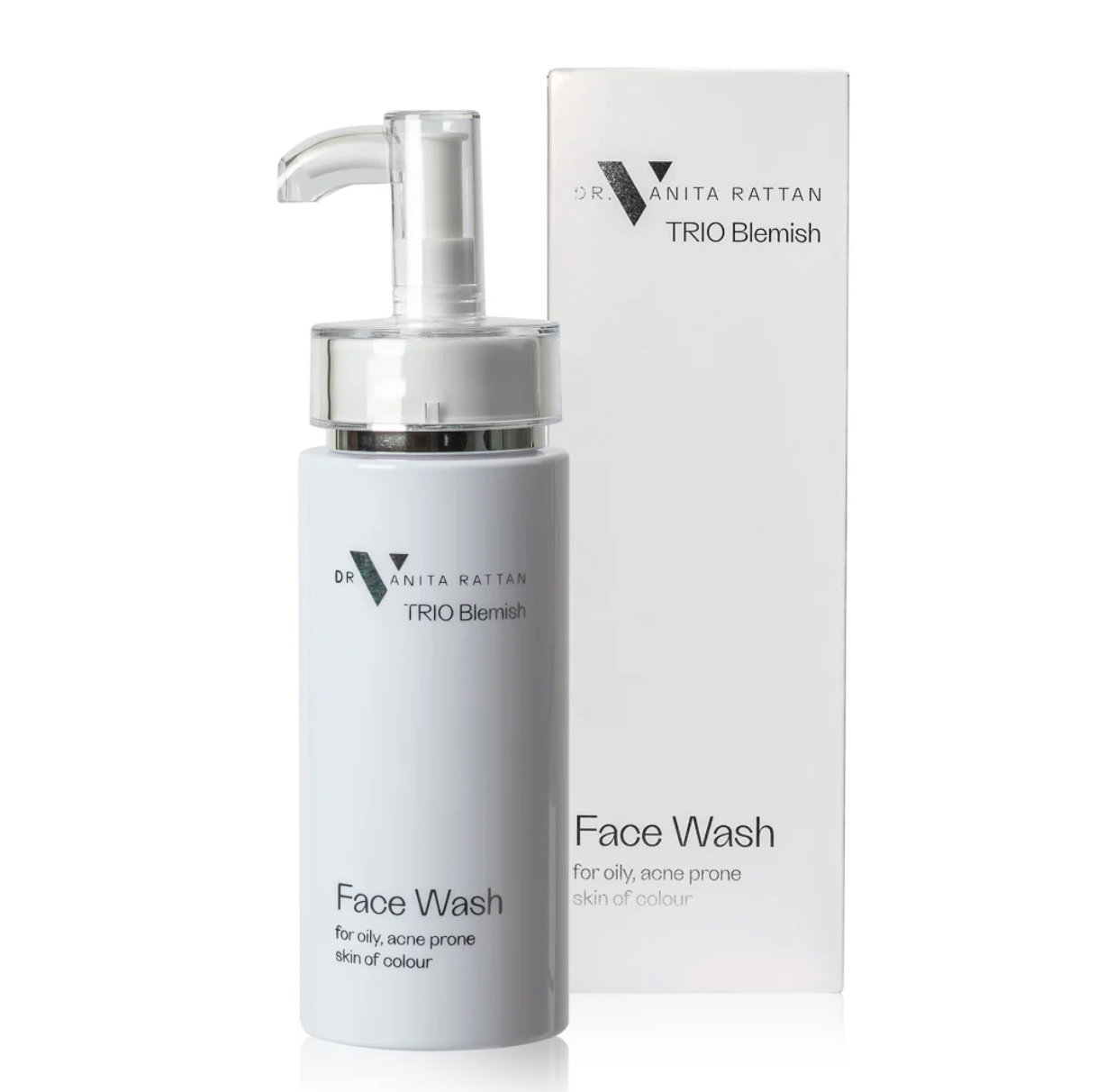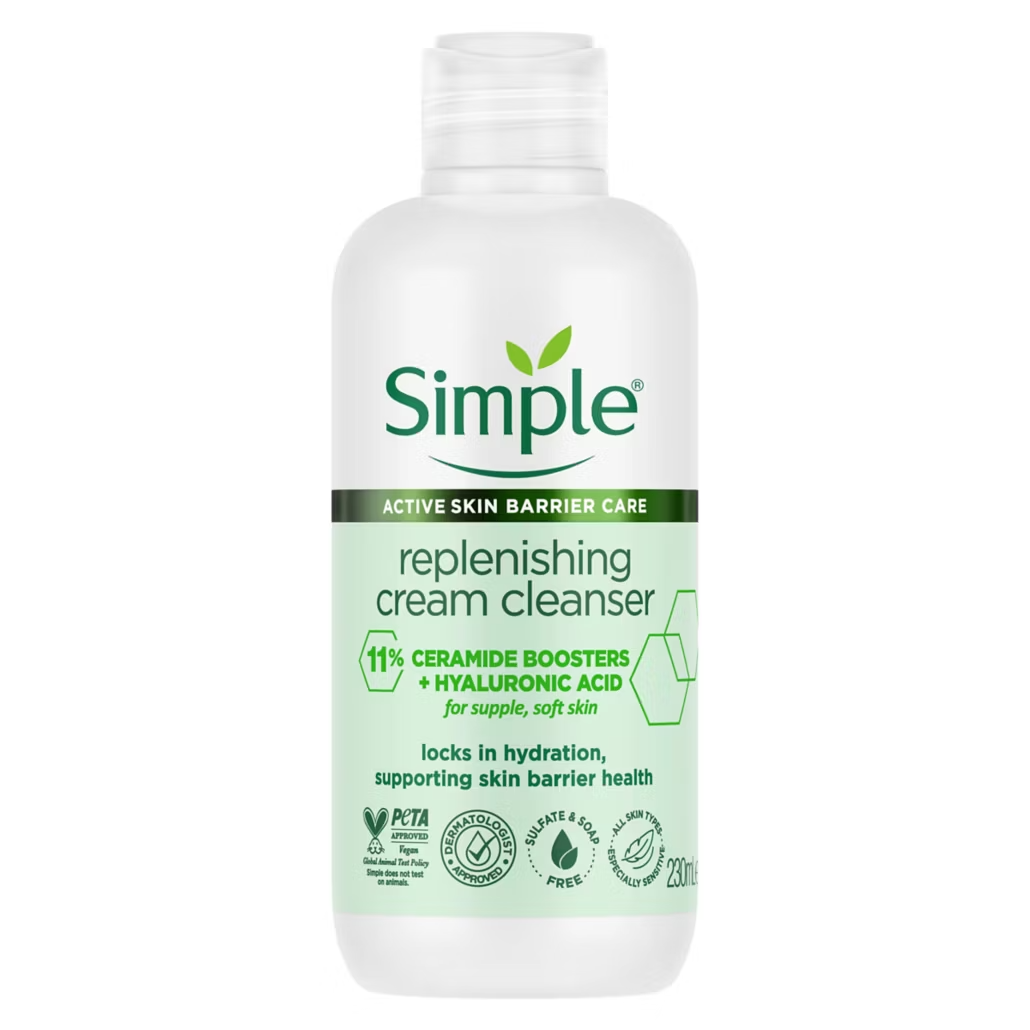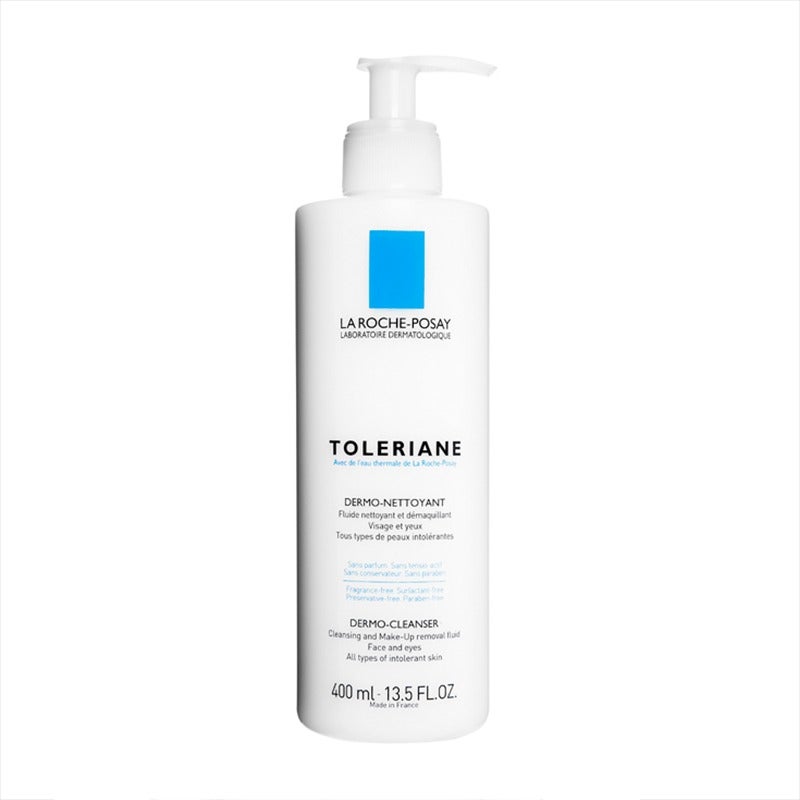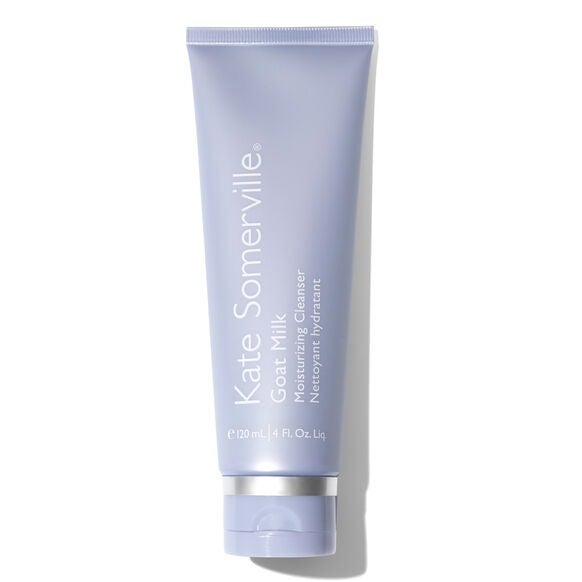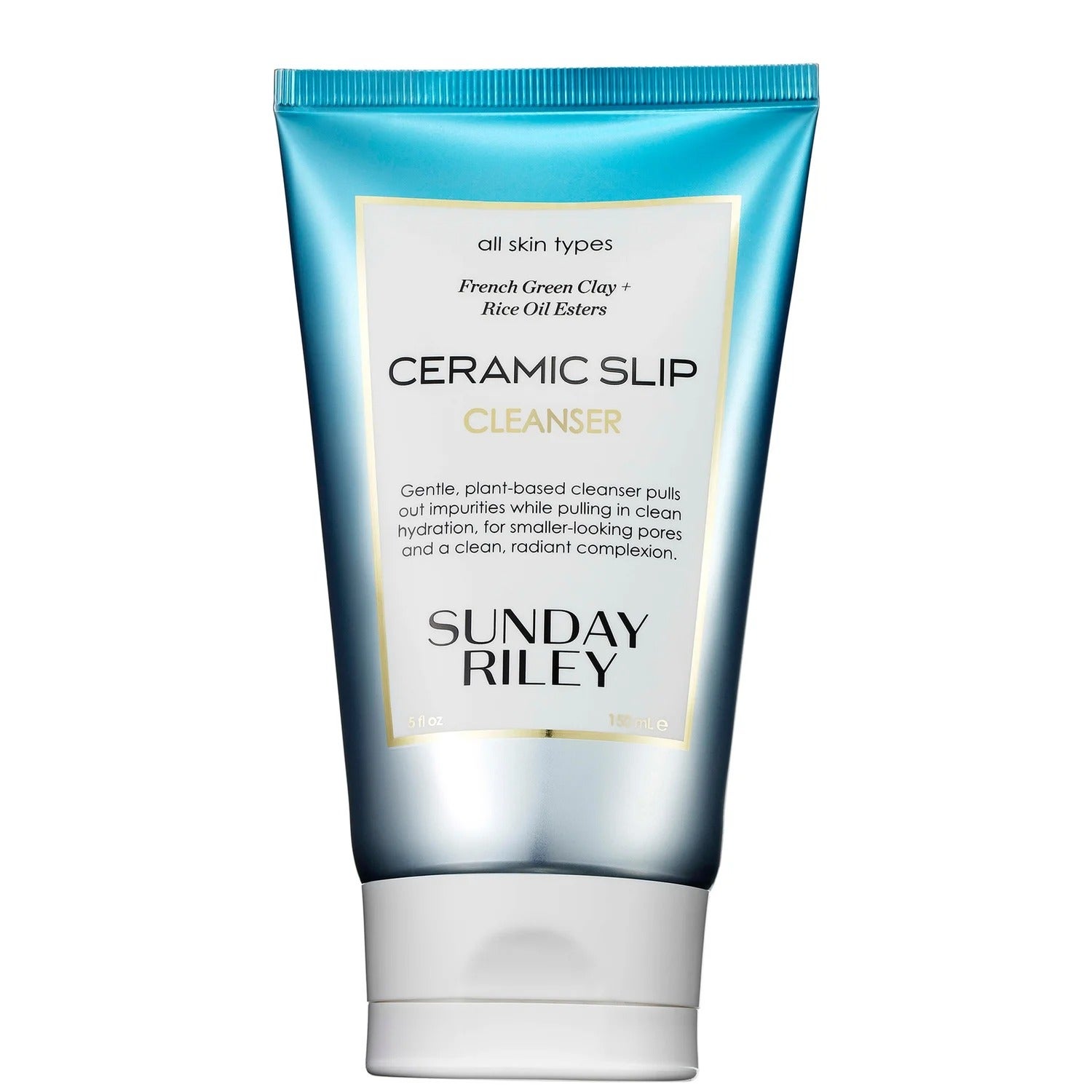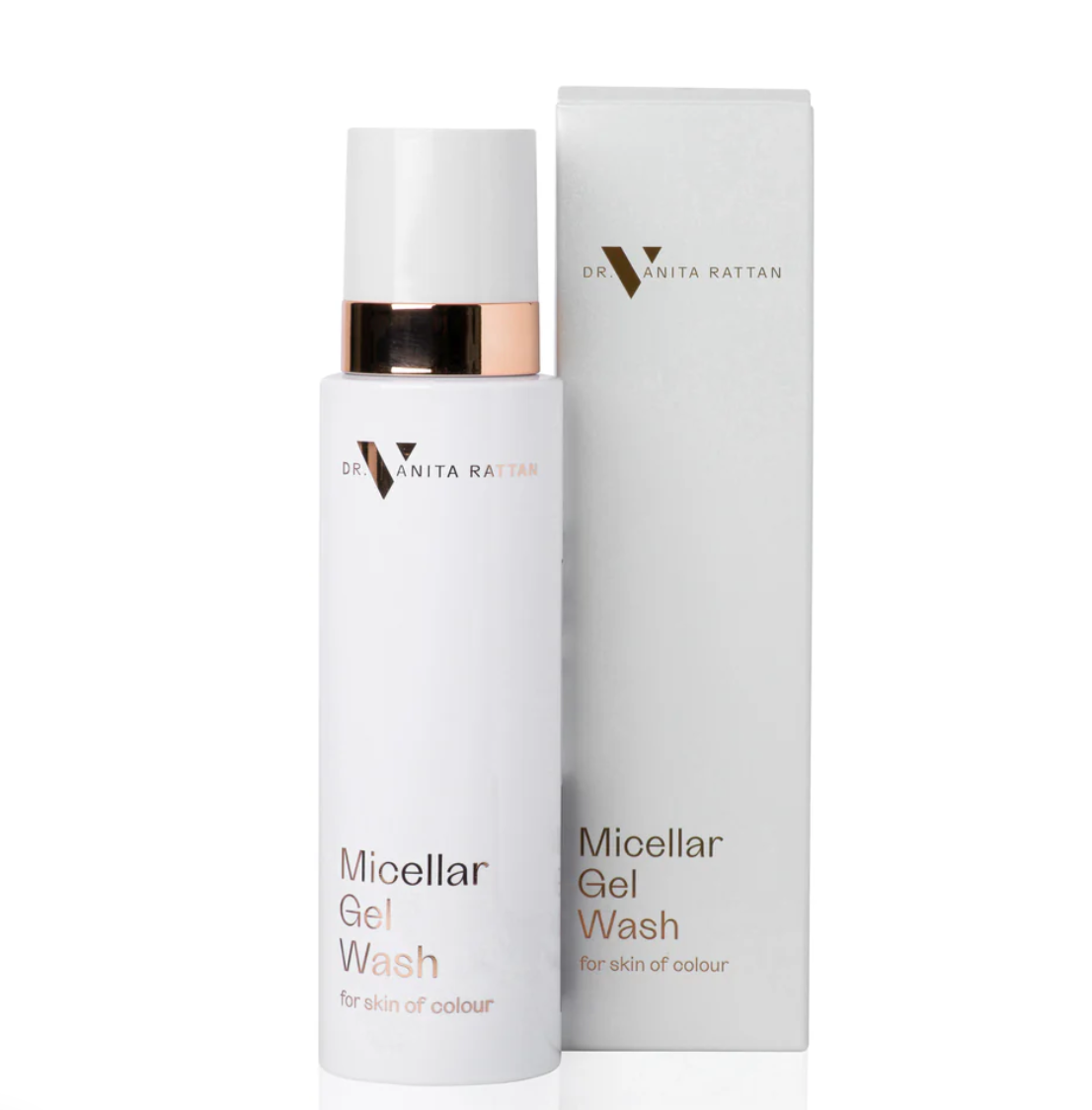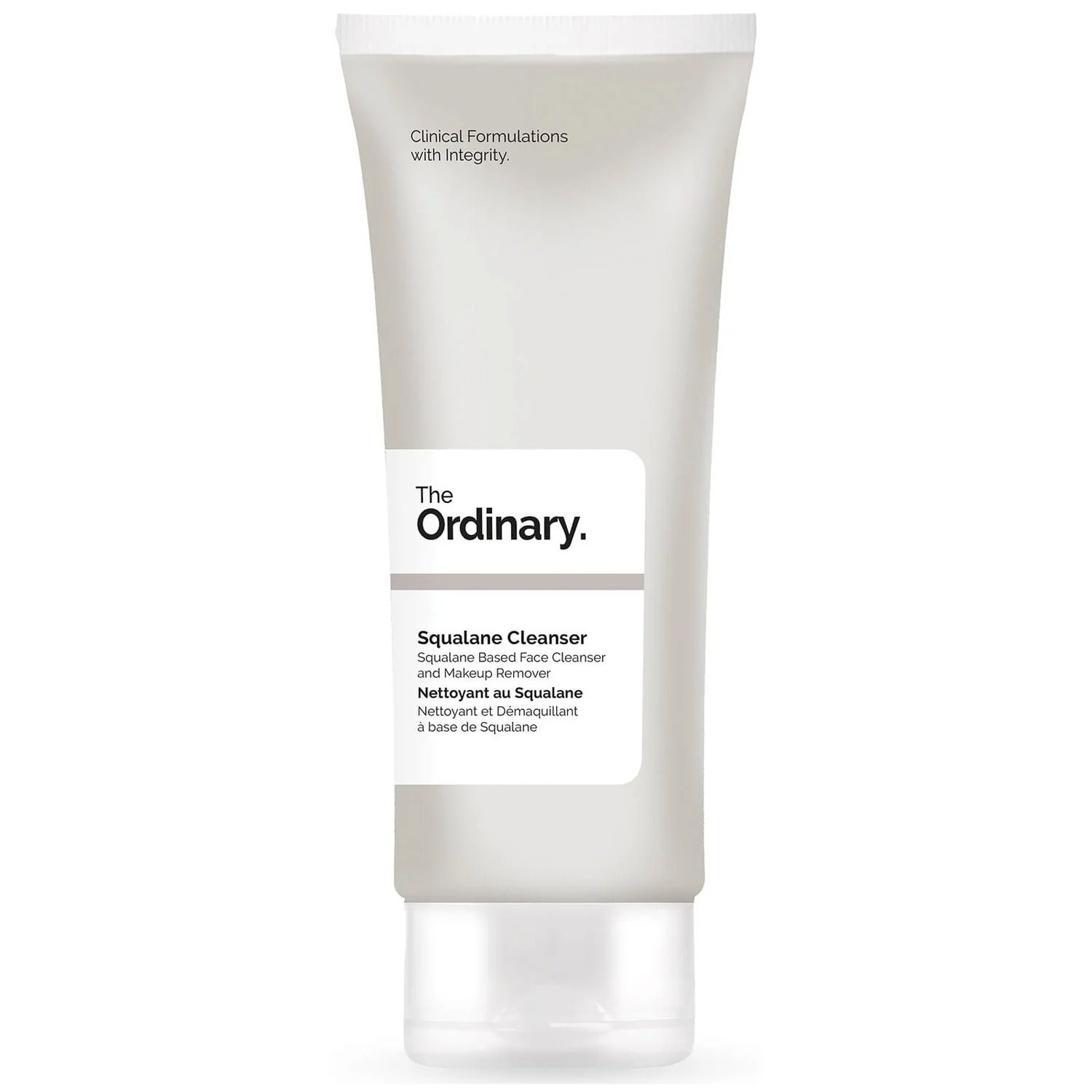All linked products are independently selected by our editors. If you purchase any of these products, we may earn a commission.
The cleanser I’m using — Garnier’s Gentle Hydrating Deep Face Cleanser — is a modest £9.99. Considering its price tag, you might assume that it isn’t the best quality but what if I told you that it’s currently the hardest working product in my skincare routine? One pump quickly dissolves stubborn mascara, melts effortlessly through tinted sunscreen and leaves my skin feeling fresh and moisturised. I can’t fault it but I know that plenty of people would contemplate spending considerably more on a face wash.
Earlier this week a luxury £58 cleanser landed on my desk and with it came high praise from a handful of my beauty editor peers. While the texture was satisfyingly cushiony and the fresh scent certainly added to the experience, it fell flat when it came to removing my makeup. That got me thinking: Is there a “correct” amount to spend on something as essential as a cleanser? And is there really a difference between high-end and high-street face washes?
AdvertisementADVERTISEMENT
What are the benefits of cleansers — and is there a difference between cheap and luxury face washes?
A cleanser is the foundation of a good skincare routine. Not only does it eradicate dirt, pollution, sunscreen and makeup — all of which can clog pores when not removed — but it allows any skincare you apply next to absorb better and work more efficiently. But what, if anything, sets luxe cleansers apart from cheaper ones?
Sometimes — but not always — lower cost cleansers tend to feature the often irritating ingredient sodium lauryl sulfate (SLS), says consultant dermatologist Dr Alia Ahmed. This is a surfactant responsible for a cleanser's lather and it can be harsh on some skin types. However, it's a common misconception that expensive cleansers are inherently better than cheaper ones, says Cigdem Kemal Yilmaz, skincare formulator and chemical engineer. “The effectiveness of a cleanser is not solely determined by its price but rather its formulation and how well it suits an individual's skin type and concerns,” she adds.
A key reason why one cleanser might be more expensive than another could be its additional ingredients. “Luxury cleansers often incorporate more cutting-edge ingredients with higher concentrations of actives,” says Yilmaz. Actives — or active ingredients — treat specific skin concerns. Examples include exfoliating acids (beneficial for unclogging pores and fading hyperpigmentation), hyaluronic acid (for hydration) and vitamin C (which brightens and protects skin against environmental aggressors like pollution).
Dr Ahmed adds that a key aspect to look for is potency: “More expensive [cleansers] may contain higher concentrations of ingredients and if these are the ones that work for you, then it’s worth the spend.” However, she advises keeping in mind that the product is always washed off so it's important to use a cleanser with active ingredients in the right way to get the maximum benefit — otherwise, it’s quite literally money down the drain. It is recommended to let active cleansers sit on the skin for one or two minutes before rinsing off. Realistically, though, you’re going to see much better results from leave-on products like serums and moisturisers compared to a cleanser, says Dr Ahmed.
AdvertisementADVERTISEMENT
In addition to the ingredients, Dr Vanita Rattan, global skin doctor and CEO of SkincarebyDrV, says that high-end products can be costly simply because of their packaging and the way they are advertised. Airtight pumps are typically more expensive than squeezy tubes, for example. Then there’s the sensory experience, such as texture, colour and fragrance, which luxury brands tend to spend more on, suggests Dr Ahmed.
Is an expensive cleanser better than a cheap cleanser?
Washing your face can feel like a chore so anything that makes the experience a little more enjoyable is not to be sniffed at. If that means opting for a luxury cleanser, then great. But lower budget cleansers can be just as good. “In 2024, the skincare market has evolved significantly,” says Yilmaz, “and it is rare to find ‘bad’ cleansers in reputable brands. That’s because consumer demand and regulatory standards have driven companies to improve their formulations.”
Many affordable cleansers, such as those from brands like CeraVe and Simple, are highly effective, says Yilmaz, and it's all thanks to the inclusion of proven ingredients. Lots of cleansers now boast things like ceramides (essentially the glue that holds your skin barrier together), hyaluronic acid (which hydrates on a deep level) and gentle (rather than harsh) surfactants. These create the lather that lifts away dirt, oil, makeup and sunscreen, without stripping skin.
Is there a “correct” amount to spend on a cleanser?
AdvertisementADVERTISEMENT
I put the same question to some beauty editor friends and they had mixed feelings about the “correct” amount to drop on a face wash. Most said that they would spend between £10 and £30. “There are so many great affordable cleansers now,” says freelance beauty writer Jenny Brownlees. “I’m currently using The Body Shop Camomile Cleansing Butter Rose De Mai, £12, and I like it just as much as the more [expensive] Elemis [cleansing balm].” Refinery29’s SEO writer Humeara Mohamed rates Naturium Fermented Camellia Creamy Cleansing Oil, £22. “I'm not incredibly fussy about my cleansers as I like to rely on a prescription retinoid to do any heavy lifting,” she says. “I just want it to remove my makeup (I'm a big makeup-wearer!) without breaking me out. This formula emulsifies when you rub it in and it turns into the most luscious, balm-like texture. It melts everything off without stinging my eyes or skin."
Freelance beauty editor and R29 contributor Morgan Fargo loves Medik8’s Micellar Mousse, £25, while Izzie Deibe, deputy content editor at Harrods magazine, is willing to spend over £30. “I’m currently using the Skin Rocks Cream Cleanser, £32. I’m a big fan of cream cleansers in general because they feel really gentle on my skin,” she says. “They’re not stripping and usually not too greasy on my already oily skin like an oil or balm cleanser might be. This one has a texture that feels luxurious. It takes my makeup off and I don’t feel like I need to go in with a different cleanser to feel super clean before bed. It does the job by itself."
AdvertisementADVERTISEMENT
Aesthetician and beauty writer Alicia Lartey tends to spend a little more. “Kate Somerville’s EradiKate Daily Foaming Cleanser, £38, is the best non-benzoyl peroxide cleanser on the market for oily and breakout-prone skin,” she tells me. When I’m not using the aforementioned Garnier cleanser, I fall back on The Ordinary’s Glucoside Foaming Cleanser, £11.10. It may be cheap but the ingredients are mighty. The star is glucoside, a mild surfactant that very gently dissolves makeup and daily grime. It’s known to strengthen the skin barrier over time rather than make skin tight and uncomfortable.
What are the best cleansers?
Ultimately, the best cleanser is one that suits both your budget and your skin’s needs. Dr Rattan recommends looking past “colourful, pretty or expensive packaging” and doing some research into whether the ingredients and texture of the cleanser you’re purchasing are suitable for your skin type. “Someone with oily or acne-prone skin may benefit from a lightweight, gel-based cleanser that helps control excess oil and unclog pores,” says Dr Rattan, “while someone with dry or sensitive skin may opt for a cleanser with more humectants [like hyaluronic acid, which attracts and locks in moisture] to hydrate the skin.”
Dr Ahmed says that she uses a different cleanser in the morning and evening depending on whether she is having a dry or sensitive skin day. “I would rather pay less per cleanser and have more than one that works for me depending on how my skin is behaving that day. My top tips are to target the concern, for example, congestion, hyperpigmentation or breakouts, with the right ingredients.” Notice how your skin feels a few minutes afterwards, she advises. If it’s dry, tight or sensitive, you might need to switch it up. “Good cleansers will remove build-up (dirt, oil, sweat, debris, pollution) and restore your skin barrier at the same time,” Dr Ahmed adds.
AdvertisementADVERTISEMENT
Which ingredients should you look out for in a good cleanser?
While a cleanser's primary role is to cleanse, many products lack the necessary ingredients to prevent the skin from becoming dry, damaged or irritated, says Dr Rattan. With that in mind, Yilmaz says that some great, skin-friendly ingredients to look out for when shopping for a cleanser (regardless of the price) include nourishing ceramides, hydrating hyaluronic acid and moisturising glycerin, which help retain moisture and protect the skin's natural barrier. She also recommends looking out for gentle surfactants such as sodium cocoyl alaninate, lauryl glucoside and cocamidopropyl betaine in particular. “These effectively remove dirt, oil and makeup without stripping the skin of essential oils, ensuring it remains hydrated and supple,” she says. “The ideal cleanser should leave your skin feeling clean, balanced and comfortable, not tight or dry.”
What is the right cleanser for my skin type?
If you have combination, oily or acne-prone skin, try CeraVe Hydrating Cream-to-Foam Cleanser, £14.50, which is kind on the skin barrier. If you’d prefer something with exfoliating properties, I rate Medik8 Surface Radiance Cleanse, £24, with salicylic acid and SkincarebyDrV’s Trio Blemish Face Wash, £18, which also boasts 2% salicylic acid to help control excess sebum and unclog pores.
If your skin is on the dry side, you might prefer a hydrating creamy cleanser with little to no foaming action like Simple Replenishing Cream Cleanser with 11% Ceramide Boosters & Hyaluronic Acid, £8. If you have a little more to spend, consider La Roche-Posay Toleriane Dermo Cleanser, £23 (a favourite among dermatologists) or Kate Somerville Goat Milk Moisturizing Cleanser, £38.
AdvertisementADVERTISEMENT
If you have no skin concerns, a cleanser is still a must. Sunday Riley Ceramic Slip Cleanser, £26, SkincarebyDrV Micellar Gel Wash, £15, and The Ordinary Squalane Cleanser, £13.90, are all great options.
Yilmaz concludes that some may prefer the luxurious experience and advanced formulations of high-end cleansers while others find that affordable options provide equally effective results for their skin. “Ultimately, the best cleanser for you is one that fits comfortably within your budget and addresses your skin’s unique requirements without causing irritation,” she says.
AdvertisementADVERTISEMENT







